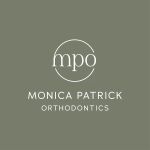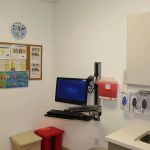Why Routine Dental Exams Are Essential for a Healthy Smile
As someone who values my smile, I can't stress enough the importance of routine dental exams. When I first started taking dental care seriously, I didn’t realize just how crucial these regular visits to the dentist could be for long-term oral health. In this article, I’ll share my experience and explain why routine dental check-ups are one of the best ways to protect your smile. Whether you're someone who hasn’t seen a dentist in a while or you're just learning about dental care, this guide will help you understand the benefits of keeping your smile healthy with regular exams.
1. What Are Routine Dental Exams?
Routine dental exams are regular visits to the dentist that typically happen every six months. During these check-ups, your dentist will carefully examine your teeth, gums, and mouth for any signs of problems. The goal of these visits is to identify potential issues early, even before you might notice symptoms, and to ensure that your oral health is in top condition. These exams are not just about cleaning your teeth; they are a preventive measure that can save you from larger, more expensive dental issues down the road.
2. The Importance of Preventive Dental Care
One of the key reasons why routine dental exams are essential is because they focus on prevention. Preventive dental care is about stopping problems before they start. For example, your dentist will check for cavities, gum disease, and signs of oral cancer. If any issues are caught early, they can often be treated with less invasive methods, which can save you time, money, and discomfort in the long run.
Think about it: you wouldn’t wait until your car breaks down to take it to the mechanic, right? The same applies to your teeth. Regular visits to the dentist allow you to avoid serious complications that could require expensive and extensive treatments like root canals, extractions, or even surgery.
3. What Happens During a Routine Dental Exam?
Wondering what to expect during a routine dental exam? Let me walk you through it. Although the process may vary slightly from one dentist to another, here's a general overview of what happens during a typical check-up:
- Initial Discussion: The dentist or dental hygienist will ask about your medical history, any new medications you're taking, or any recent issues you’ve had with your teeth or gums.
- Teeth Cleaning: A professional cleaning is done to remove plaque and tartar build-up. This is something that regular brushing and flossing can’t achieve alone.
- Examination: The dentist will carefully examine your teeth, gums, and mouth for signs of cavities, gum disease, and other oral health issues. If necessary, they will take X-rays to get a deeper look at your teeth and bone structure.
- Checking for Oral Cancer: The dentist will also examine your mouth for signs of oral cancer, which is crucial for early detection.
- Discussion and Recommendations: After the examination, the dentist will discuss the findings with you and recommend any necessary treatments, whether it's a follow-up visit, a fluoride treatment, or a special hygiene routine to follow.
4. How Often Should You Get a Routine Dental Exam?
The general recommendation is to visit your dentist for a routine check-up every six months. However, some people may need to visit more frequently depending on their specific dental needs. For instance, if you have a history of gum disease or cavities, your dentist might suggest more frequent visits to monitor your oral health.
If you’re unsure, I’d recommend speaking with your dentist to determine the right schedule for your specific situation. Personally, I find that keeping up with my semi-annual check-ups helps me stay on top of my oral health and avoid unnecessary problems.
5. The Benefits of Routine Dental Exams
Now that you know what happens during a routine dental exam, let’s talk about the benefits. These visits offer numerous advantages for maintaining a healthy smile:
- Prevention of Tooth Decay and Gum Disease: Regular exams allow your dentist to catch cavities, gum disease, and other issues before they become serious problems. This means you can avoid costly treatments like fillings, root canals, and extractions.
- Early Detection of Oral Cancer: Oral cancer is a serious condition that can be difficult to detect in its early stages. During your exam, your dentist will check for any signs of abnormal growths, sores, or lesions in your mouth.
- Improved Overall Health: Studies show that good oral health is linked to better overall health. Gum disease, for example, has been associated with an increased risk of heart disease, diabetes, and other conditions.
- Keeping Your Smile Bright: Routine cleanings help remove plaque and tartar build-up, ensuring that your smile stays bright and fresh. Your dentist can also offer tips for maintaining healthy habits at home.
6. My Personal Story: How Regular Check-ups Helped Me
When I first started going to the dentist regularly, I didn’t realize just how beneficial it would be for my smile. I’ll admit, I was a little nervous about those first few visits. But once I started, I found that it wasn’t nearly as bad as I expected. In fact, I felt empowered knowing that I was taking charge of my oral health.
One visit in particular stands out: my dentist detected a small cavity during an exam that I hadn’t noticed. Because it was caught early, I was able to have it filled quickly and without any pain. If I had waited longer, that cavity could have turned into a much more serious issue. That experience solidified my commitment to regular dental visits, and my teeth have stayed healthy ever since.
7. How to Make the Most of Your Routine Dental Exams
To get the most out of your dental check-ups, there are a few things you can do:
- Maintain Good Oral Hygiene at Home: Brushing and flossing regularly is essential for keeping your teeth healthy between visits. It’s a simple way to reduce the likelihood of cavities and gum disease.
- Follow Your Dentist’s Advice: If your dentist recommends a specific treatment or routine, be sure to follow their advice. This may include using a special toothpaste, switching to a different brushing technique, or even scheduling additional visits if necessary.
- Ask Questions: If you're unsure about something during your check-up, don't hesitate to ask. Whether it's about your cleaning, a recommended treatment, or general oral health, your dentist is there to help you.
8. The Bottom Line: Routine Dental Exams Are Key
Routine dental exams are an essential part of maintaining a healthy smile. They help prevent problems, detect early signs of disease, and ensure your teeth stay in great condition. I encourage you to schedule your next check-up and commit to a healthy dental routine. The peace of mind that comes with knowing you’re taking care of your smile is well worth it!
If you’re looking for the best dental services, check out Dentistry Toothtruth to find trusted professionals who can guide you on your journey to optimal oral health.







 Drs. Trava, Oh, Petix, Shon & Yang4.0 (21 review)
Drs. Trava, Oh, Petix, Shon & Yang4.0 (21 review) All Smiles By Design4.0 (549 review)
All Smiles By Design4.0 (549 review) Richboro Smiles4.0 (29 review)
Richboro Smiles4.0 (29 review) Monica Patrick Orthodontics0.0 (0 review)
Monica Patrick Orthodontics0.0 (0 review) ChapCare by AltaMed Medical and Dental Group — Pasadena, Fair Oaks3.0 (47 review)
ChapCare by AltaMed Medical and Dental Group — Pasadena, Fair Oaks3.0 (47 review) Smiles 4 Kids4.0 (550 review)
Smiles 4 Kids4.0 (550 review) The Importance of Oral Health Education During Pregnancy for a Healthy Pregnancy
The Importance of Oral Health Education During Pregnancy for a Healthy Pregnancy Best Tips for Brushing Your Teeth Properly for Healthy Gums: Essential Techniques for Oral Health
Best Tips for Brushing Your Teeth Properly for Healthy Gums: Essential Techniques for Oral Health Why Skipping Dental Checkups Can Lead to Bigger Oral Health Problems
Why Skipping Dental Checkups Can Lead to Bigger Oral Health Problems Advantages of Porcelain Dental Restorations
Advantages of Porcelain Dental Restorations How Can Diabetes Cause Tooth and Gum Problems? Preventing and Managing Oral Health Issues
How Can Diabetes Cause Tooth and Gum Problems? Preventing and Managing Oral Health Issues Healthy Habits for Promoting Good Oral Health and Hygiene: Tips for a Healthy Smile
Healthy Habits for Promoting Good Oral Health and Hygiene: Tips for a Healthy Smile